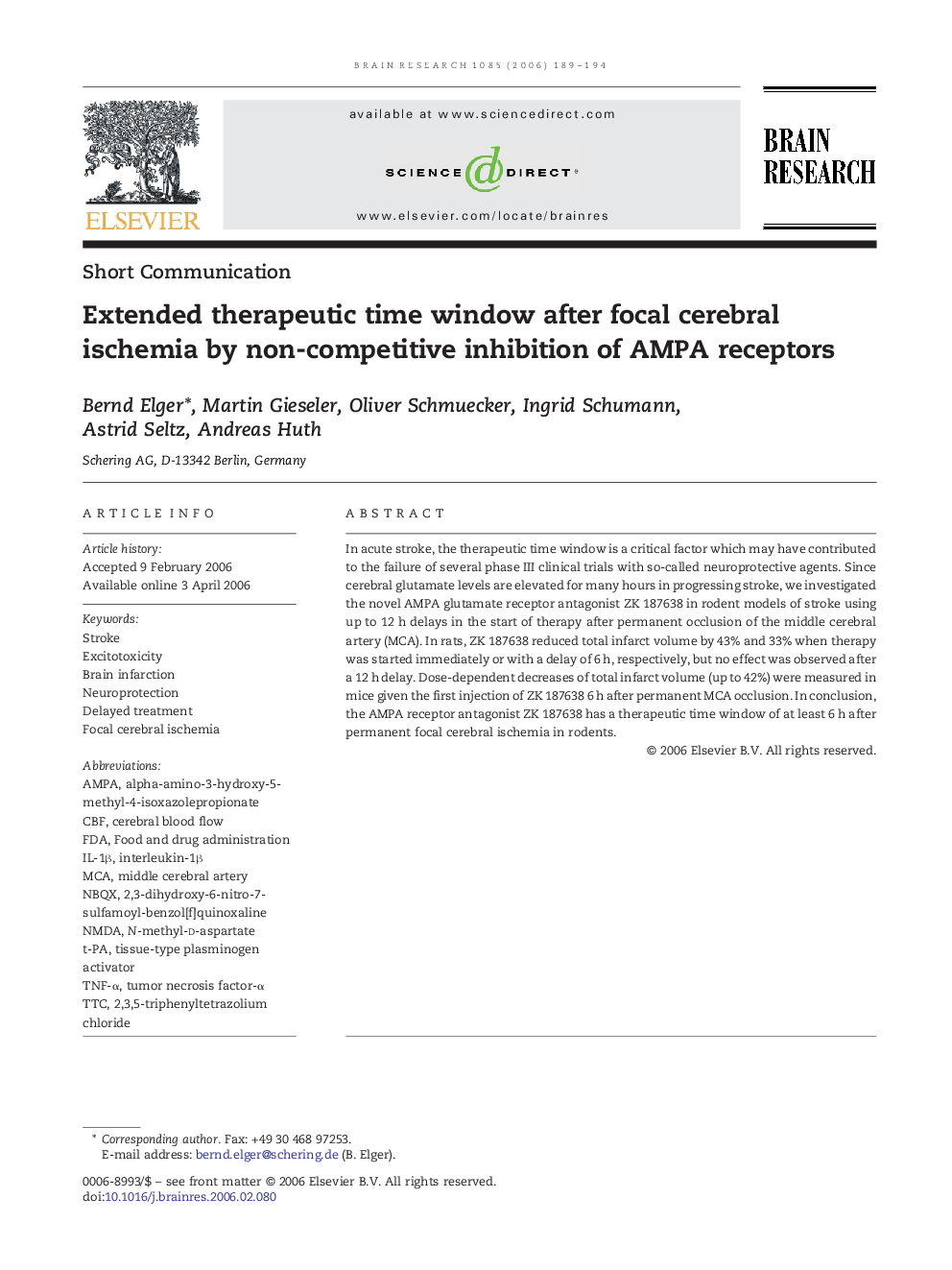| Article ID | Journal | Published Year | Pages | File Type |
|---|---|---|---|---|
| 4332910 | Brain Research | 2006 | 6 Pages |
Abstract
In acute stroke, the therapeutic time window is a critical factor which may have contributed to the failure of several phase III clinical trials with so-called neuroprotective agents. Since cerebral glutamate levels are elevated for many hours in progressing stroke, we investigated the novel AMPA glutamate receptor antagonist ZK 187638 in rodent models of stroke using up to 12Â h delays in the start of therapy after permanent occlusion of the middle cerebral artery (MCA). In rats, ZK 187638 reduced total infarct volume by 43% and 33% when therapy was started immediately or with a delay of 6 h, respectively, but no effect was observed after a 12Â h delay. Dose-dependent decreases of total infarct volume (up to 42%) were measured in mice given the first injection of ZK 187638 6 h after permanent MCA occlusion. In conclusion, the AMPA receptor antagonist ZK 187638 has a therapeutic time window of at least 6 h after permanent focal cerebral ischemia in rodents.
Keywords
t-PAN-methyl-d-aspartateNMDACBFIL-1βAMPATTCNBQXMCAFDA2,3,5-triphenyltetrazolium chloridealpha-amino-3-hydroxy-5-methyl-4-isoxazolepropionatebrain infarctionexcitotoxicityFocal cerebral ischemiaInterleukin-1βtumor necrosis factor-αcerebral blood flowDelayed treatmentFood and Drug AdministrationStrokemiddle cerebral arteryTNF-αTissue-type plasminogen activatorNeuroprotection
Related Topics
Life Sciences
Neuroscience
Neuroscience (General)
Authors
Bernd Elger, Martin Gieseler, Oliver Schmuecker, Ingrid Schumann, Astrid Seltz, Andreas Huth,
